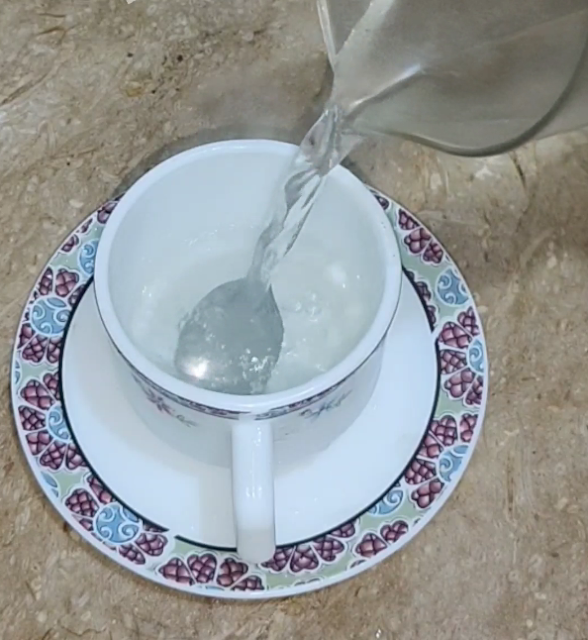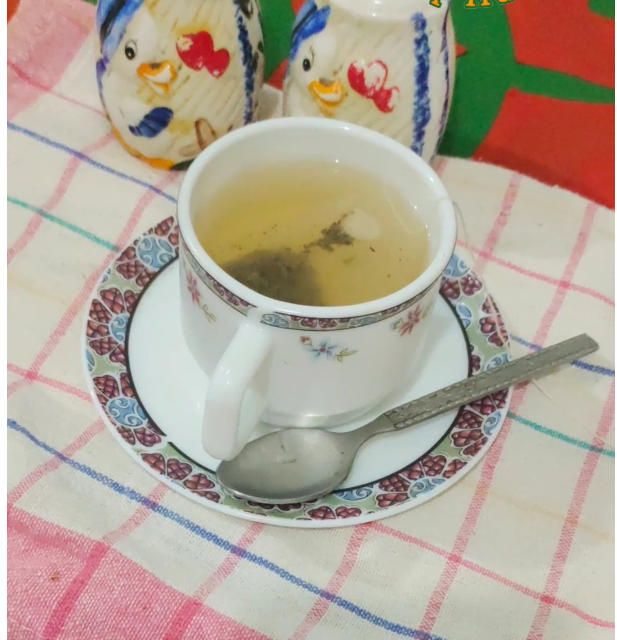Green Tea Benefits and Side Effects|| How to Make Green Tea with step-by-step photos and video
Green Tea is the healthiest tea considered across the world is contains a lot of health benefits it has a wonderfully light, earthly flavor. It is loaded with antioxidants and nutrients that have powerful effects on the body. These include improved brain function, fat loss, a lower risk of cancer, and many other impressive benefits.
Simple
green is one of my favorites for its health benefits and delicious taste. Enjoy
a hot cup plain or sweetened for the perfect afternoon break. Green Tea is a must-try at home as an
alternative to regular tea and can be a routine drink if you like the flavor. I
prefer this tea twice a day after a sumptuous meal.
ABOUT GREEN TEA:
It's interesting to note that Green Tea and regular Tea come
from the same tea plant, but their production methods differentiate them.
To brew a cup of Green Tea, boil water in a kettle or on the
stovetop, and then add a tea bag or some tea powder to it. This healthy drink
is perfect for people of all ages, including pregnant women.
Milk Tea vs. Green Tea?
Green tea is generally considered to be healthier than milk
tea as it contains a higher concentration of antioxidants and lower calories.
Milk tea can provide some health benefits, such as:
Source of calcium: Milk is a good source of calcium, which is essential for maintaining healthy bones and teeth.
Energy boost: The caffeine in tea can provide a temporary energy boost, which can help improve mental alertness and concentration.
Antioxidants: Some types of tea, such as black tea, contain antioxidants that can help protect against cellular damage and reduce the risk of chronic diseases.
Soothing properties: Warm milk tea can have a
soothing effect and help calm the mind and body, which can be helpful for
managing stress and anxiety.
My latest Recipe for Green Tea:
Benefits
of Green Tea
Green tea has been associated with a variety
of health benefits, including:
Antioxidants: Green tea contains high levels
of antioxidants, which can help protect the body from damage caused by harmful
molecules known as free radicals. These antioxidants have been linked to a
lower risk of chronic diseases, including heart disease, cancer, and
Alzheimer's disease.
Weight management: Green tea can help boost
metabolism and promote fat burning, which can aid in weight management and
weight loss.
Brain function: The caffeine and amino acid
L-theanine in green tea can improve brain function, including improved memory
and attention.
Heart health: Green tea has been linked to a
lower risk of heart disease by reducing blood pressure and cholesterol levels.
Oral health: The antioxidants in green tea
can help improve oral health by reducing inflammation, preventing tooth decay,
and promoting healthy gums.
Skin health: Green tea's antioxidants can
also benefit skin health by protecting against sun damage, reducing
inflammation, and improving skin elasticity.
Green
tea contains less caffeine than coffee?
While green tea does contain caffeine, it is present in
smaller amounts compared to coffee. A cup of green tea typically has around 20
to 30 milligrams of caffeine, which is less than ¼ cup of coffee. In contrast,
black tea has about 55 milligrams of caffeine per cup,
Which is equal to ½ a cup of coffee. Despite having some
caffeine, green tea is still an excellent choice for an afternoon drink due to
its limited caffeine content. However, it is advisable to avoid drinking green
or black tea at night to prevent sleeplessness.
Green tea contains polyphenols that can reduce the risk of
cancer, aid in weight loss, and detoxify the body.
Can drinking green tea have any negative effects on the body?"
Green tea has a lot of health benefits in some cases seen as a side effect of tea we will mention below in a few lines
It's
important to keep in mind that green tea should be consumed in moderation as
excessive consumption can cause negative effects and complications.
Low
iron levels in the blood can lead to iron deficiency, which can reduce
hemoglobin levels responsible for transporting oxygen to other cells in the
body. Green tea contains caffeine, which can interact negatively with certain
medications, causing adverse effects and complications.
If
you have inflammatory bowel disease, it's best to avoid drinking green tea as
it can trigger inflammation and symptoms like stomach pain and vomiting by
binding with iron in the body.
While
flavonoids in green tea can be beneficial for bone growth, consuming too much
can negatively impact bone density. Additionally, the caffeine in green tea may
hinder calcium absorption, leading to low calcium levels in the bones, which is
crucial for maintaining healthy bones.
Heartburn is a common symptom of gastroesophageal disease (GERD),
commonly known as acidity. Green tea contains theophylline that enhances the
acidic environment in your stomach.
Quantity
of Green Tea You Should Have Per Day?
It
is worth noting that green tea, like any food or drink, can have side effects
if consumed excessively. To avoid these side effects, it is recommended that
you consume green tea in moderation, with a limit of two cups per day being
considered safe. However, drinking more than 3-4 cups of green tea per day can
have detrimental effects on your health.
You Might Like This:
Like Our Videos? Then do follow
and subscribe to us on YouTube to get
the latest Recipe Video updates.
For detailed recipes step by
step watch my video!
How to Make Green Tea?
Green tea is a breeze to make. All you need are loose green tea leaves or tea bags, sugar or honey, and lemon juice. Personally, I prefer using a tea bag for my tea. To add some variety to your green tea, try incorporating threads of ginger and lemongrass.
These
variations will make each sip of green tea even healthier and more beneficial.
Nonetheless, I regret not following up on my suggestion.
Here are two different ways to make tea. For the first method, start by boiling one cup of water in a pan. After it boils, add one teaspoon of green tea leaves and let it cook for a minute before removing the pan from the stove. for more, I will provide more information in the next step.
How to
Make Green Tea?
Green tea is a breeze to make. All you need are loose green tea leaves or tea bags, sugar or honey, and lemon juice. Personally, I prefer using a tea bag for my tea. To add some variety to your green tea, try incorporating threads of ginger and lemongrass.
These variations will make each sip of green tea even healthier and more beneficial. Nonetheless, I regret not following up on my suggestion.
Here are
two different ways to make tea. For the first method, start by boiling one cup
of water in a pan. After it boils, add one teaspoon of green tea leaves and let
it cook for a minute before removing the pan from the stove. for more, I will
provide more information in the next step.
Making Green Tea: First, boil water in a pan
to make green tea. Then, take a mug or cup and add sugar or honey along with lemon
juice. Mix the mixture well. Next, pour the boiling hot water into the mug or
cup and stir again.
Finally, put the tea bag into the cup and dip it in water 8-10 times. Let the tea bag rest in the cup and stir once more. Your delicious green tea is now ready to drink.
*Not be duplicated, rewritten or published
without permission- Thank you!




.jpeg)





.jpeg)
.jpeg)





Have you any doubts about this blog kindly let me know
EmoticonEmoticon